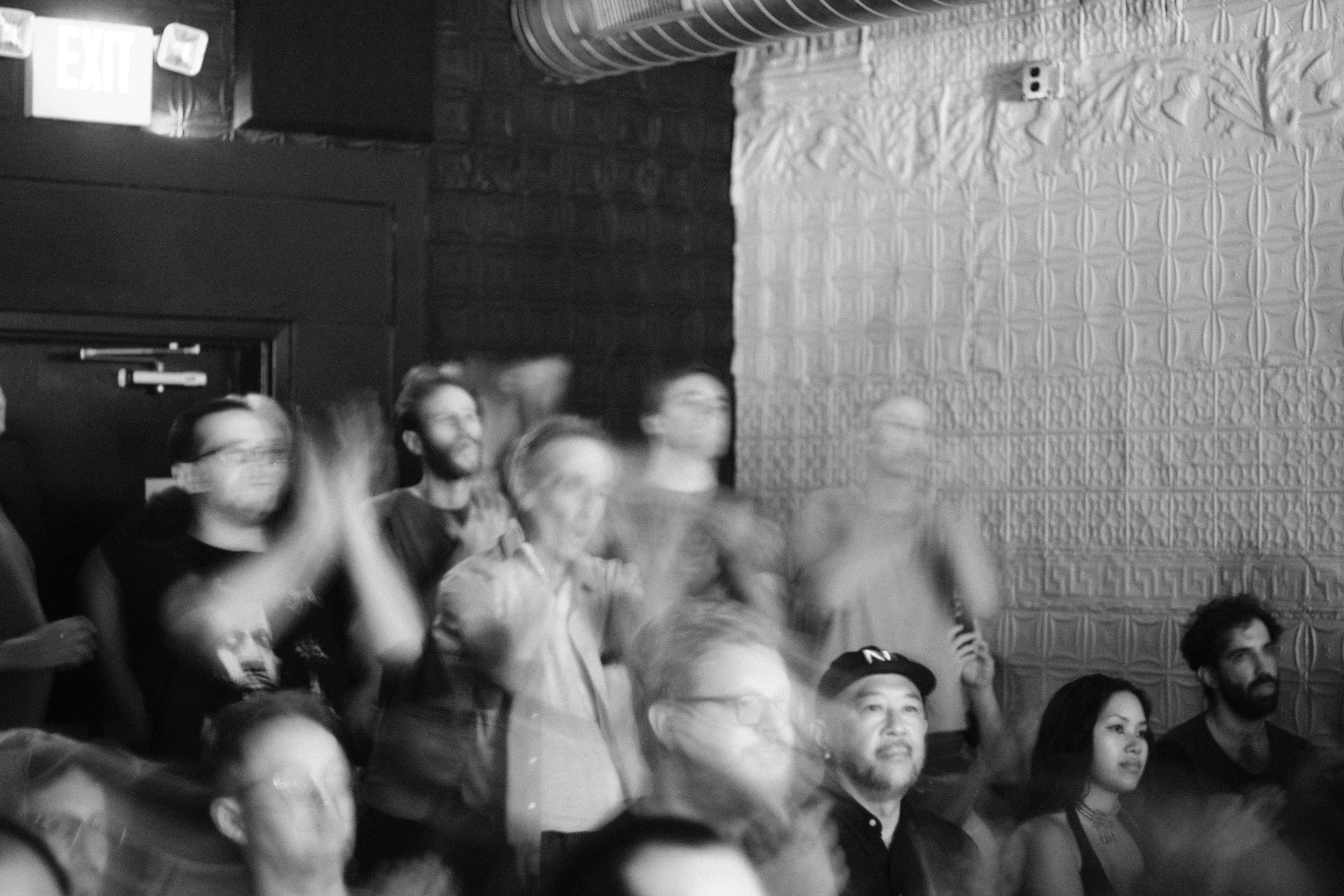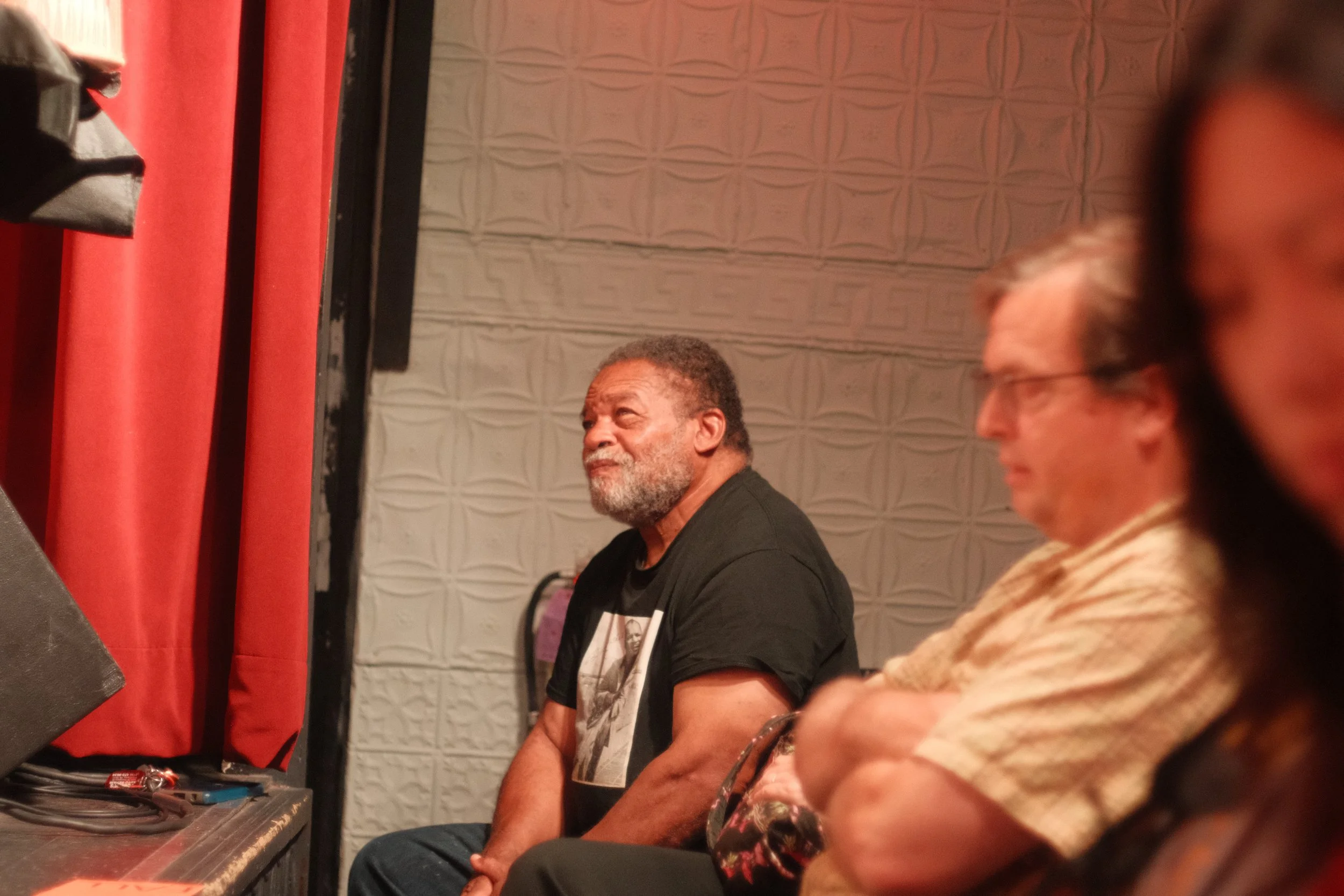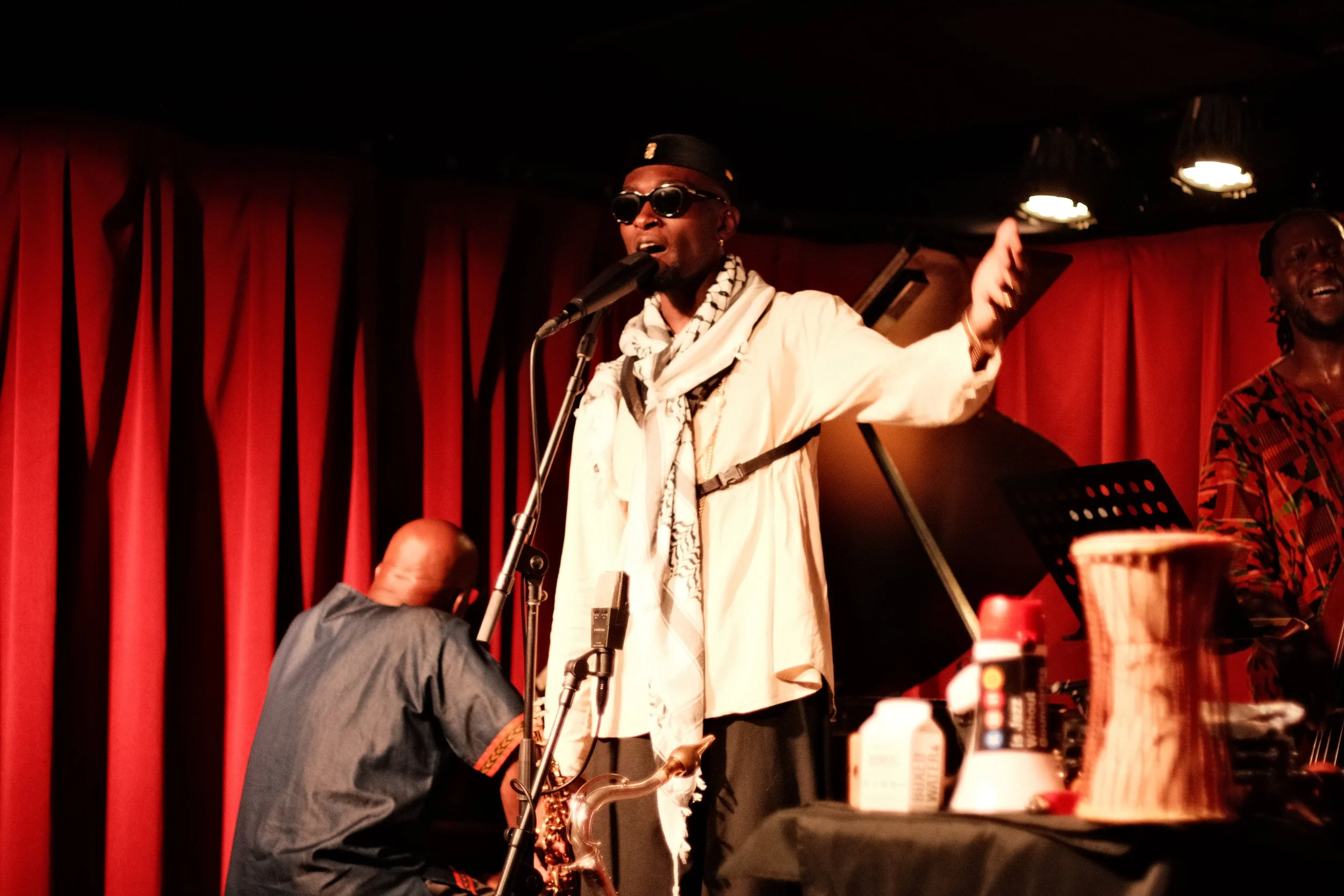Concert Review: Isaiah Collier, Solar Myth
August 26, 2024
Photographs by Stanley Collins
“I have a sacred job to do in this moment right now” — Isaiah Collier on The Almighty
On Friday, August 23rd, Isaiah Collier — the Chicago-born saxophonist — played in front of sold out audience at Philadelphia’s Solar Myth concert venue. On this night, Collier was joined by Orrin Evans on Piano, Jonathan Michel on bass, and Khary Abdul-Shaheed on Drums. The concert comes in support of his most recent album, The Almighty — a five-part suite exploring one’s relationship to the divine — as well as a set of dates along the east coast. The show was sponsored by Philadelphia-based organization Ars Nova Workshop.
In a tightly packed room, separated by two columns of chairs, Isaiah Collier, along with his band, made their way down the center aisle to the stage. After situating themselves at their stations, Collier kicked off the night with Body and Soul. First, Orrin Evans on piano — establishing tempo and hinting at form — then bass and drums accenting, and eventually Collier joining in and introducing the melody on the tenor saxophone. Collier played the first solo, then, as Evans soloed, Collier walked to his station of percussive instruments — sleigh bells, tambourine, shakers — to compliment Evans’ solo. Both the arrangement and the performance were energetic, displaying each band members’ unique approach to the composition. This was evident as the tune closed, where Collier played alone for close to two minutes, moving through a dexterous display of the instruments high and low registers.
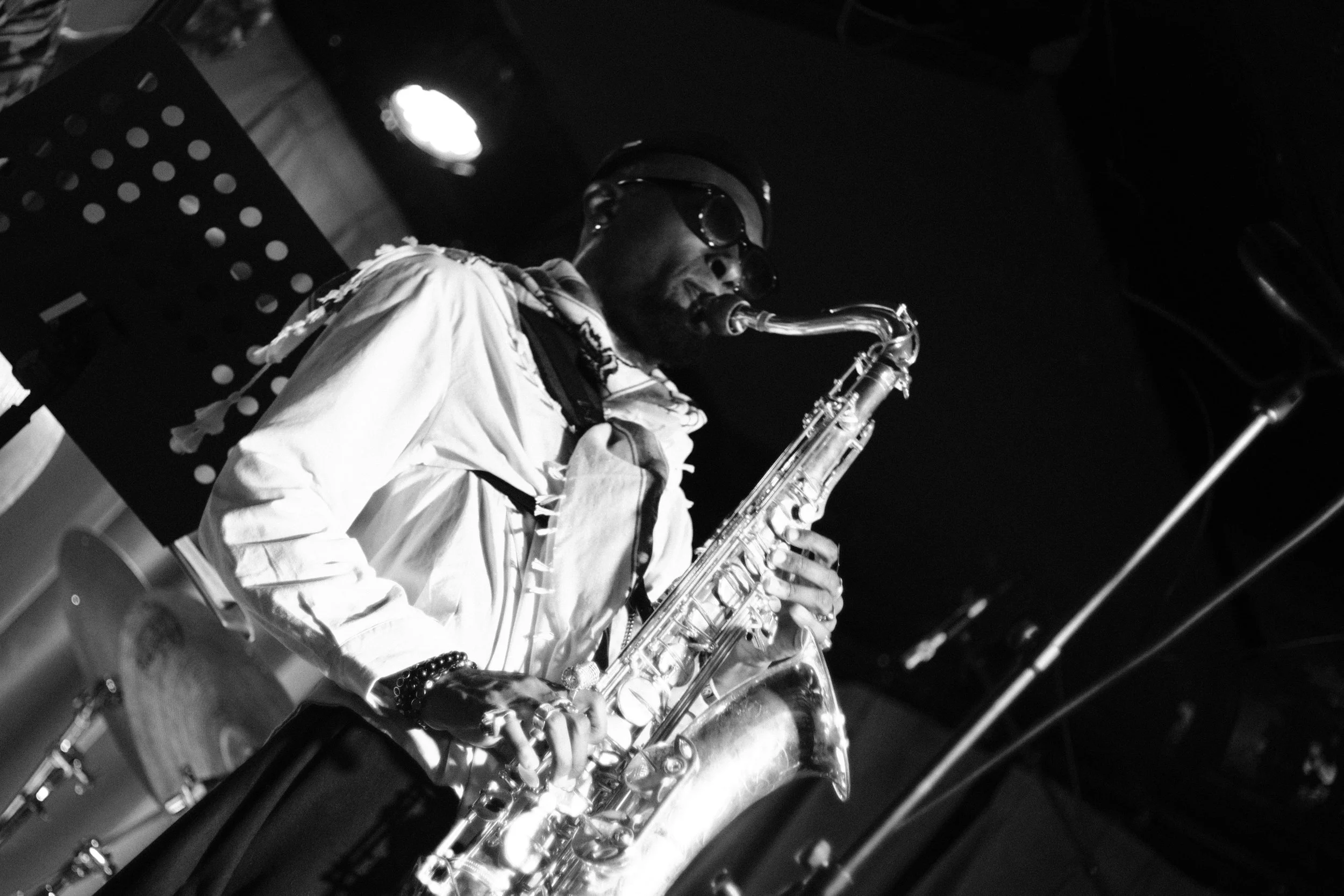
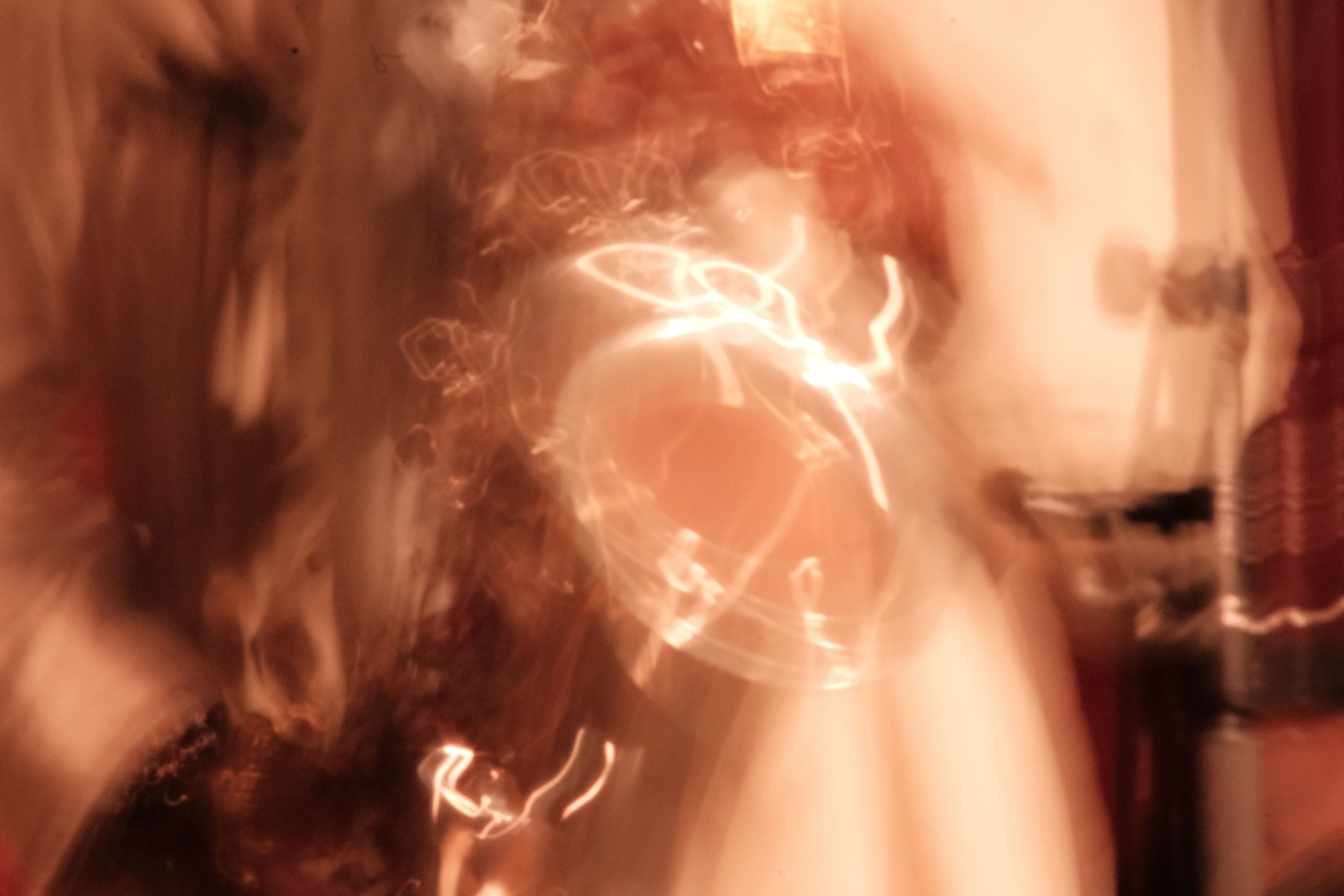
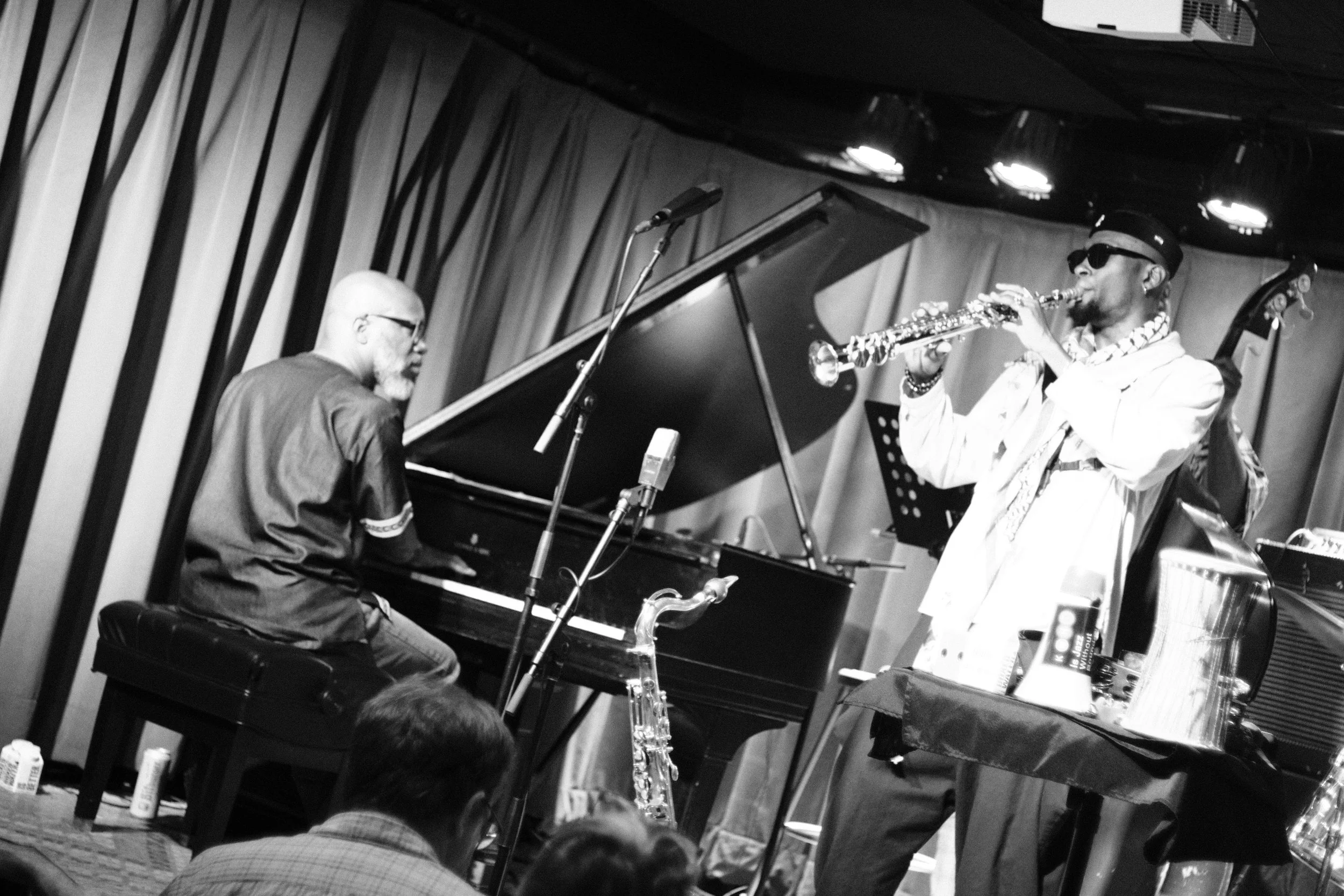
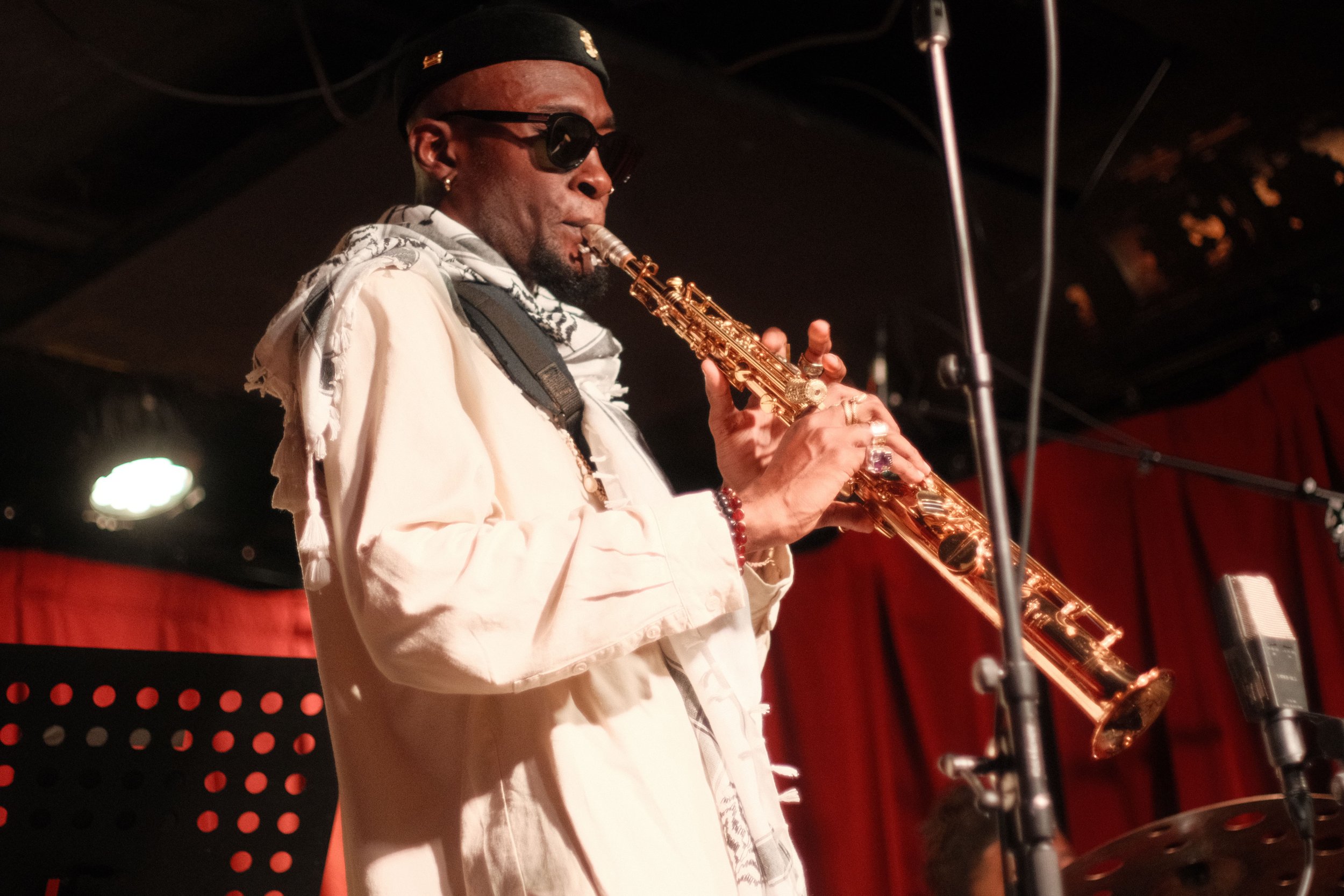
Collier dedicated this first song to a couple in the room, as well Russell Malone, the virtuosic guitarist Collier counted as a mentor, who had just passed earlier that day. For many in the room, including myself, this was the first time learning of Malone’s passing. Collier stated that he recently played Body and Soul in front of Malone earlier in the year and that, if Malone wasn’t such a prolific guitarist, he’d make a great comedian. It was a nice moment of levity for what could’ve been a solemn moment.
I often think of covers — particularly those performed in a live setting — as a performers way of stating the tradition(s) they belong to; the genealogy they follow in. Composed nearly 100 years ago, Body and Soul has long earned its place as a Jazz “standard.” It’s been covered by vocalists and instrumentalists alike. But, for saxophonists in particular, Body and Soul represents a particular genealogy, extending from Ornette Coleman and Coleman Hawkins to John Coltrane and Pharaoh Sanders. To begin the night here was Collier’s thesis statement.

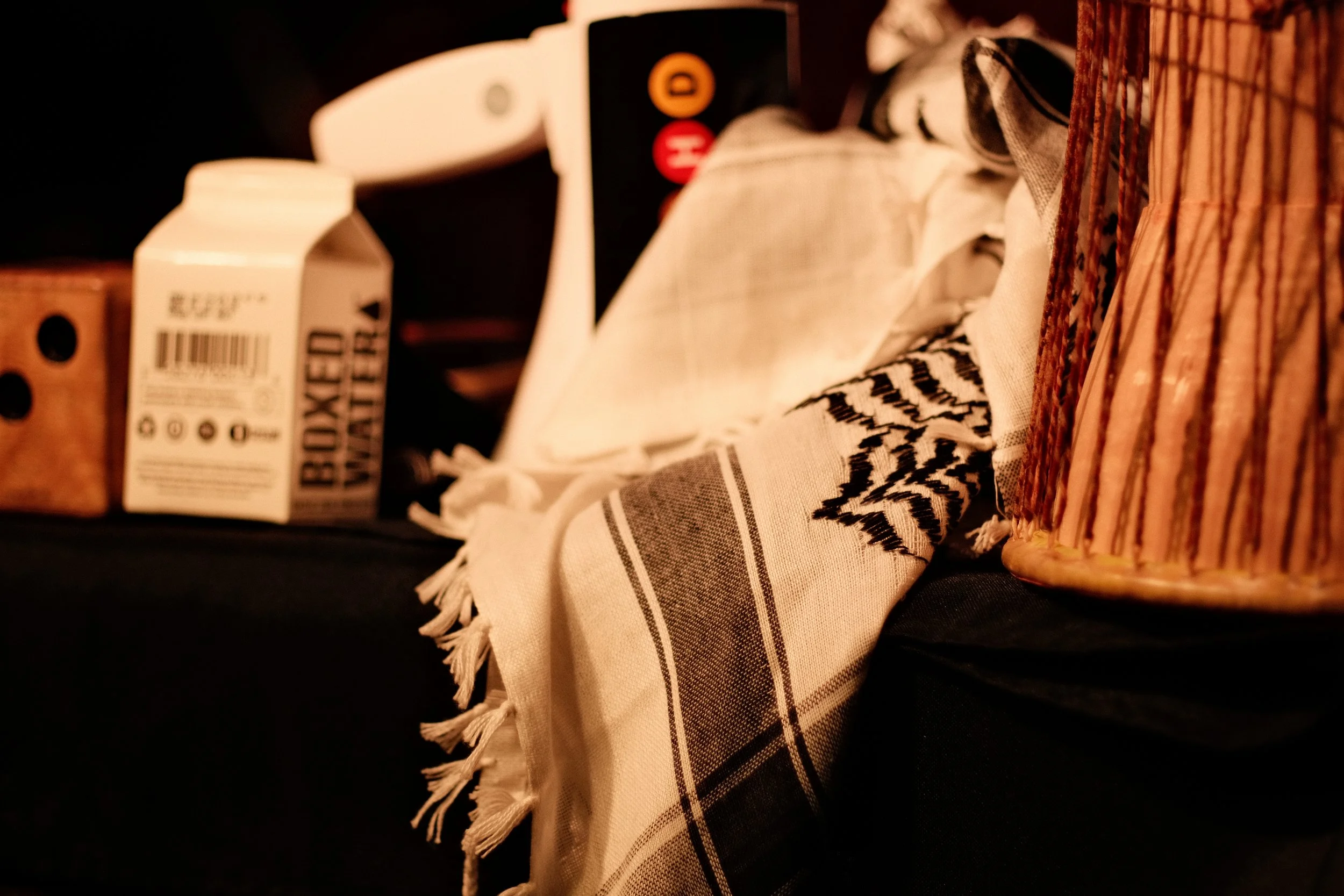
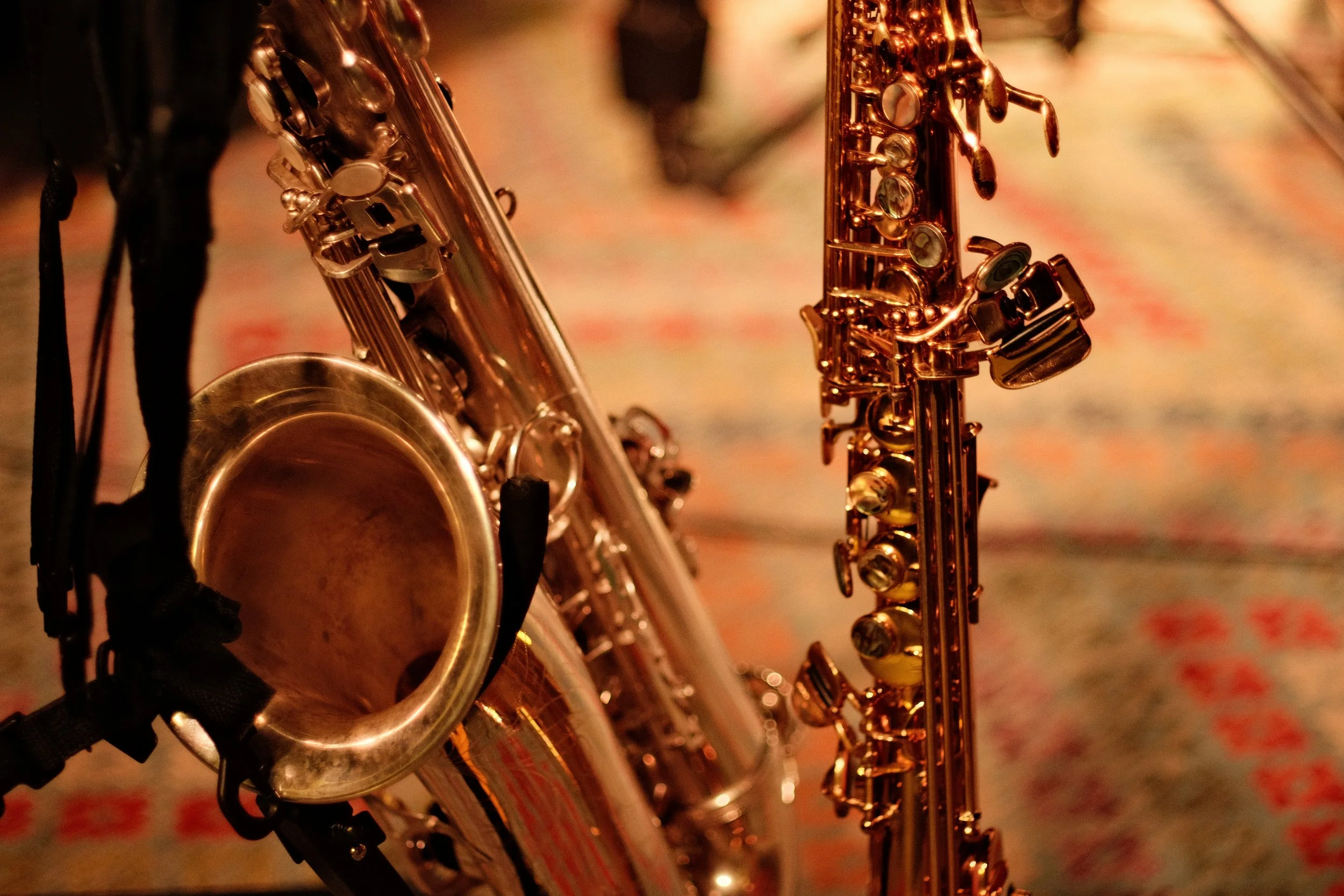
Collier spent the rest of the night with his tunes, mostly from his latest album, The Almighty. The performance of the title track was especially noteworthy: it began with Michel bowing the upright bass, Evans reaching inside the piano, muting its strings, Abdul-Shaheed striking the cymbal stand with his sticks, and Collier with a Kenari shaker and sleigh bells — culminating in a sound that washed over the room, as if a gust of wind had been blown from the stage. With little tempo or form, the strength of the song came from the musicians’ communication with each other, listening closely and responding to each others’ playing. Then, after several minuets, Collier began singing, a question: “you say freedom has a price but is it worth your life?” It was a moving display of musicianship.
The object of place — Philadelphia and Solar Myth in this case — made this evening unique. Toward the latter portion of the show, Collier was joined on stage by fellow saxophonist and Philadelphia veteran, Bobby Zankel for a performance of Compassion, an original tune from The Almighty. For Collier, Zankel was his introduction to Philadelphia, having invited Collier to play with his band, Warriors of the Wonderful Sound during a two-night residency in January of 2023. In addition, on this night, Collier’s backing band was a lineup made up of Philadelphians, in some way or another, too. Indeed, the city’s lineage as a place for “Free Jazz” — sometimes referred to as “Avant-Garde Jazz” — and Ars Nova Workshop’s preservation of such legacies made the evening singular.
Collier closed the show with Peace + Love, an upbeat, odd-metered tune. Here, Orrin Evans begins legato on piano, as Collier uses his full arsenal of percussive instruments. Here, the song’s lyrics — “peace and love” — operate as refrain. Following an high emotion-filled solo section highlighted by Michel on Bass, Collier began teaching the audience the song’s harmony, dividing the room into three. Once the parts were established, Collier stopped the music as the voices rang out, singing “peace and love.” With the audience now functioning as a choir, Collier took the lead, ad libbing in a call-and-response manner as a choir director might in church. Collier responds “…we need it Palestine / [PEACE AND LOVE] / we need it in the Congo / [PEACE AND LOVE] / we need it in Sudan / [PEACE AND LOVE] /we need it in America / [PEACE AND LOVE]” The energy, the spirit if you will, in the room felt somehow both heavy and light; a tension and a release during this final section. As Collier brought the band back in, the audience continued singing, the eventually retarding to a close. As the band concluded the tune, and came together to take a final bow, Michel began singing peace and love again to which the audience joined in as well. Indeed, there was a sweet spirit in this room.
